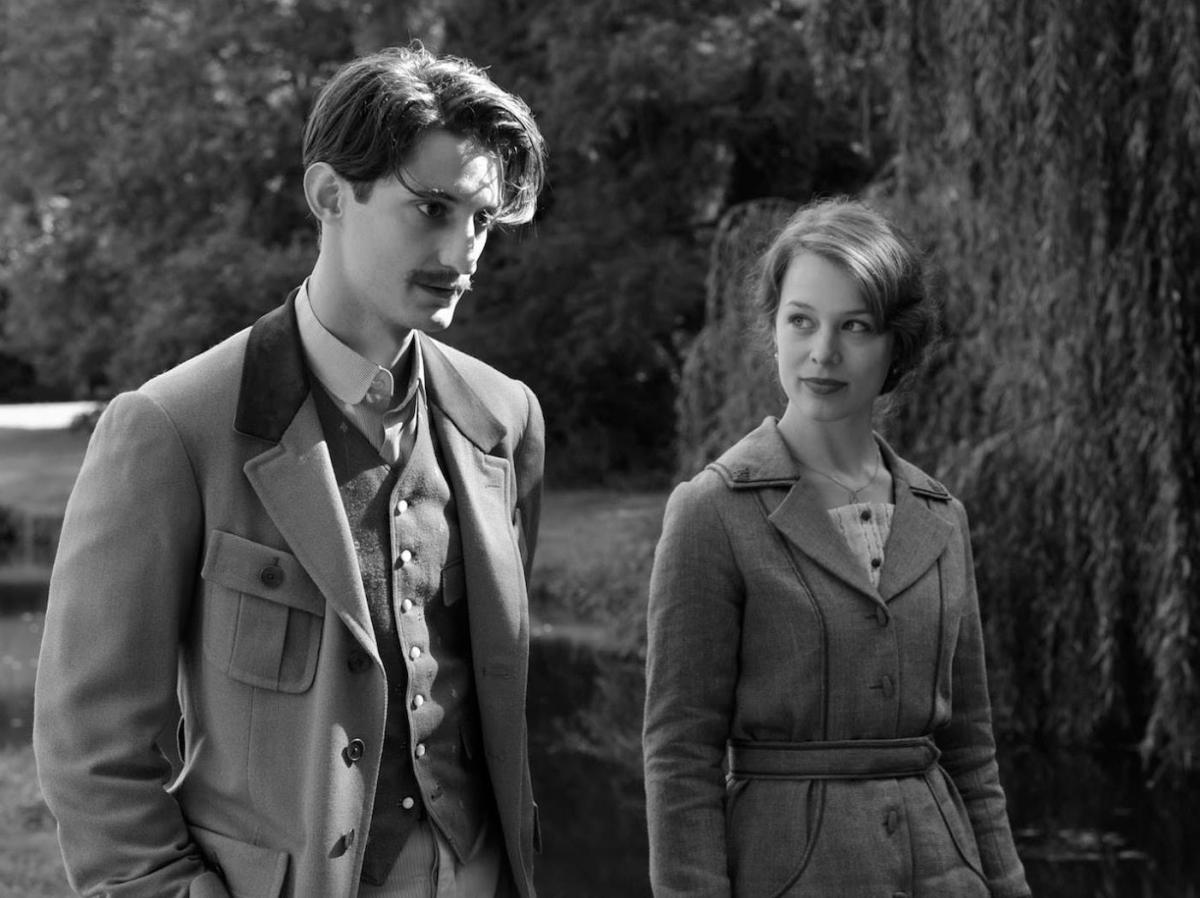Pierre Niney and Paula Beer in Frantz, image via Sharmill.
‘Frantz loved France so much,’ Anna (Paula Beer, 4 Kings) tells Adrien Rivoire (Pierre Niney, The Odyssey) early in François Ozon’s latest film, the pair conversing in French in a German cemetery. The former, her now-dead fiancé, unites them. The latter, his country and the place hers blames for their suffering, should do the opposite. And yet, Anna is drawn to the handsome stranger she first spies placing flowers on Frantz’s grave in Quedlinburg in 1919. Her stern prospective father-in-law, Doktor Hans Hoffmeister (Ernst Stötzner, Alone in Berlin), may be wary from the First World War, but she shares the same enthusiasm as her would’ve-been mother-in-law Magda (Marie Gruber, The Cold Heart). Adrien might represent the enemy, but he’s also a fresh link to Frantz’s extinguished-too-soon life.
The ways that the living cope, or don’t, with the dead isn’t a new topic for Ozon; nor are emotions left unspoken to bubble beneath the surface and secrets allowed to fester. Once more plunging into their depths, the veteran helmer of Under the Sand, Swimming Pool and In the House navigates through the sea of uncertainty that swells during mourning, in the face of lying, when giving voice to one’s struggles is not an option, and when fiction is kinder than fact. Frantz’s figures cling to what they can – memories, hope, stories, each other – even when they know they shouldn’t because, in the aftermath of tragedy and destruction, that’s all they have.
Based on Ernst Lubitsch’s 1932 effort Broken Lullaby, but favouring the bereaved woman’s rather than the haunted Frenchman’s perspective, Frantz charts the connection that springs between Anna and Adrien as they both endeavour to process the trauma that has brought them together. He leaves, she follows him to France, and they both seek whatever solace that they can find in what becomes an emotionally complex deconstruction of loss and the adage that life goes on. For everyone other than the character who lends the feature his name and looms large through his absence, that proves true – but how, what that means in reality, and the ways that those who remain come to terms with the past, protect those around them, and move forward, are all weaved into the fabric of the contemplative drama.
Jumping back in time from his recent slate of modern stories – 2013’s Young & Beautiful and 2014’s The New Girlfriend among them – Ozon matches his delicate probing with painterly images; both the story and the visuals have the air of having been conjured into existence in precise strokes, each more exacting than the last. Indeed, if the narrative scripted by Ozon with Philippe Piazzo (Tout est calme) wasn’t so effective at drawing viewers in, then every frame that brings it to the screen would’ve achieved that feat. Cinematographer Pascal Marti (Arctic Heart) mirrors the elegance and resonance so evident in the storytelling, as well as the tale’s many complexities, in everything from the austere sights of small town Germany to the telling shadows that graze Anna and Adrien’s faces. And, when the film takes its few sparing jumps from moody monochrome to heady colour, the transition is handled with both finesse and feeling.
Rendered with such striking compositions, Ozon implores viewers to gaze deeply at the scenes depicted; cast with a just as astute eye, his players invite the same response. Beer beguiles, often saying little but expressing plenty, with much of the movie carved from watching her restrained but riveting reactions. As for Niney, it’s easy to see why his Adrien fascinates all that cross his path, just as it’s easy to share the character’s inner conflict. Both give rich performances filled with subtleties and happy to hint rather than shout, a mode that serves the film rewardingly.
Rating: 4 stars out of 5
Frantz
Director: François Ozon
France | Germany, 2016, 113 mins
Release date: April 13
Distributor: Sharmill
Rated: PG
Actors:
Director:
Format:
Country:
Release:





